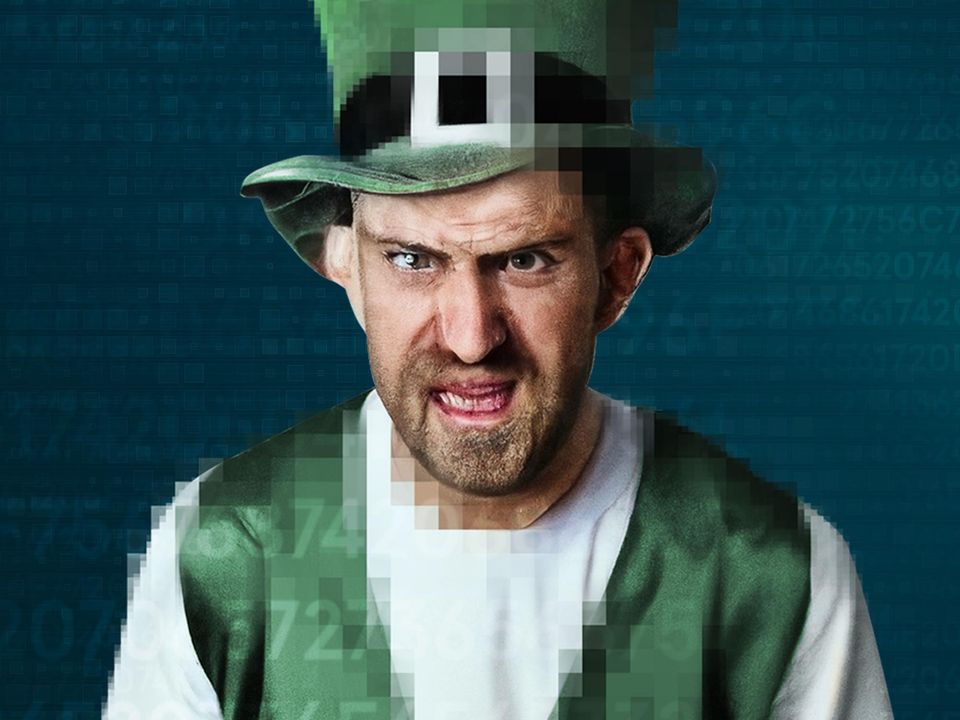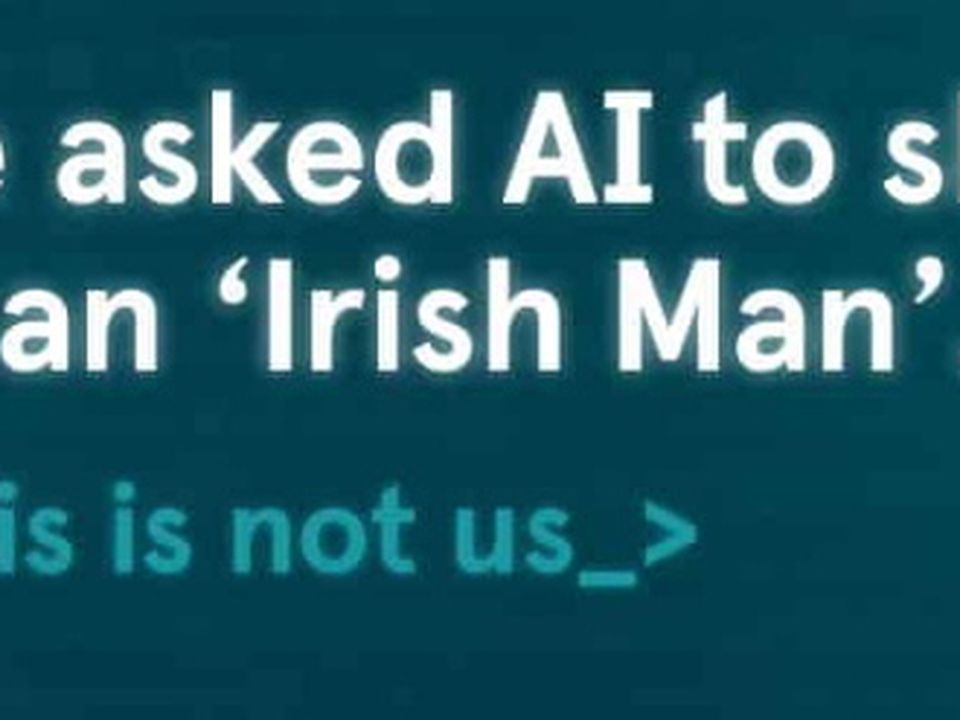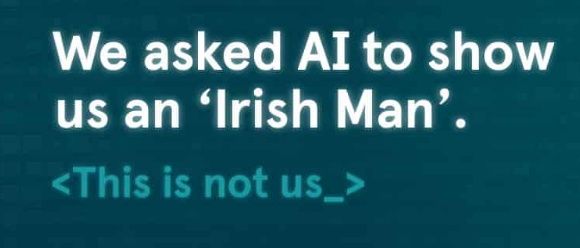Artificial Intelligence generator portrays Irish people as ‘drunken leprechauns’
"While being Irish cannot possibly be summed up in a single image, we were surprised to find that AI generated images of the Irish are full of outdated stereotypes.”
EPIC, the Irish Emigration Museum in Dublin, have made the startling discovery that artificial intelligence sees Irish people as drunk, angry, ugly, leprechauns.
By prompting the world’s most used AI generator to show an ‘Irish man’, EPIC uncovered results which were consistently outdated, disturbing and derogatory.
“We hope to inspire people to look beyond stereotypes wherever they encounter them and create meaningful conversations about the pitfalls and potentials of AI,” said Aileesh Carew, CEO of EPIC.
EPIC museum asked AI to show an "Irishman". Photo: EPIC
The museum is challenging negative clichés and calling to account ‘big tech’s’ misleading stereotypes found in generative AI, with its latest campaign, Paddy ‘A.I.rishman’.
The campaign is a follow up to ‘This is Not Us’, when EPIC uncovered data that showed incorrect perceptions of the Irish which prevail globally. EPIC has now highlighted non-human intelligence’s outdated stereotypes of us as people.
“Since we first opened our doors, we at EPIC The Irish Emigration Museum have worked tirelessly to challenge such stereotypes of the Irish,” Aileesh said.
“We continue to do so today, asking big tech why they still paint us in such a negative light. While being Irish cannot possibly be summed up in a single image, we were surprised to find that A.I. generated images of the Irish are full of outdated stereotypes.”
AI representation of an 'Irishman'. Photo: EPIC
AI takes data from across the internet and creates what it ‘thinks’ is the most accurate representation of its prompt.
In reality, fabrication and disinformation in generative A.I models are a well-established phenomena. This fabrication of reality distorts human beliefs, which cannot be easily rectified.
“It’s disappointing to see the existence of these negative stereotypes within AI, at EPIC we know that the Irish are more than just stereotypes – we are inventors, poets, designers, leaders and changemakers.
"Our music, literature, culture, sport, food and dance attract millions of people to our country each year,” said Nathan Mannion of EPIC.
Generative A.I models – including Open AI’s GPT variants, Google’s Bard, OpenaAI’s DAL-L.E, Stable Diffusion and Midjourney all contain known racial, gender and class stereotypes and biases from their training data and other structural factors.
AI stereotype
Read more
All generative AI models regularly fabricate information.
Humans form beliefs by sampling small amounts of data available and once beliefs are formed with high certainty, they can be difficult to revise.
Distortions to reality are not easily rectified.
“One of the recognised downsides of AI is the potential to reinforce biases that exist in information already published,” said Alex Gibson of the Technical University, Dublin.
“We all need to understand that AI processes essentially trawl data that already exists, and therefore is susceptible to significant misrepresentation.
“I am not at all surprised by the findings of the EPIC team and it is a very useful illustration of the challenges AI poses, and one I plan to share with my own students,” Alex said.

















































